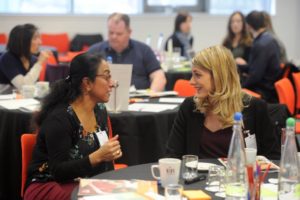We use cookies on this website which are essential for it to work. We also use non-essential cookies to help us improve our websites which will be set only if you accept. Any data collected is anonymised.
For more detailed information about the cookies we use, see our Cookies page.
Some cookies are classed as strictly necessary, as the website won’t work properly without them. They are essential to allow you to navigate our site and to make sure the core processes work. You may disable these by changing your browser settings, but this may affect how the website functions.
Other cookies are non-essential and are classed as performance cookies. They are used to collect information in aggregate about how visitors use our site. This data is used to make informed decisions on whether the site is meeting your needs, which leads us to making improvements.
Non-essential cookies are used to store information about how you use the site and can be turned off.

Cooking skills blog: Cooking skills research – Reasons to be cheerful, part one
Earlier this year, around 50 people, many who run or manage cooking skills activities came together to hear evidence about the impact of community co oking activities.
oking activities.
They heard from Professor Martin Caraher (City, University of London) and Dr Ada Garcia (University of Glasgow). Lyndsay Clark (Fife Health & Social Care Partnership) and I discussed the results from the CFHS cooking skills study group realist evaluation.
Here’s some information that will cheer up anyone looking for evidence of the impact of community cooking skills courses:
Cooking skills study group realist evaluation
This evaluation gave us information about 75 adults (51 women and 24 men) who took part in community cooking skills courses across Scotland. Our findings showed that:
You can find out more about the results of our evaluation in ‘chopping and changing’, including what worked, why and who for.
Professor Martin Caraher discussed the history and politics of cooking skills classes as well evidence. He reminded us that concern about people on low-incomes lacking cooking skills is not new – it was raised in the 18th and 19th centuries. However, lack of cooking skills is not unique to people living on low incomes. Martin’s views (gathered and researched over many years) of the impact of community cooking activities included:
You find out more about Martin’s work and read some of his publications here.
Dr Ada Garcia reported on the findings from the second stage of evaluating the NHS Greater Glasgow and Clyde eat better, feel better programme. Many of the people taking part in the programme were mothers (or carers) with children living at home. 296 people completed pre and post course evaluation questionnaires and 67 people completed pre course questionnaires and follow up interviews (around 10 months later). Ada’s findings included:
You can find out more about Ada’s work and read some of her articles (including the first stage of the eat better, feel better evaluation) here.
Practitioners views of the impact of community cooking:
Those attending our event wrote down their ‘hurrah’ moments: their successes from running cooking activities. The biggest response (10 people) were successes that related to social outcomes, building confidence or engaging with people, for example:
‘Whilst chopping veg, a young [vulnerable] guy found the courage and felt safe to talk to me about his hopes and fears for the future after a chaotic past..’
Four people wrote about participants moving onto volunteering roles, such as:
‘when participants who have never cooked much before can do so much at the end of the class! And then go and volunteer their new cooking skills to help others..’
And others wrote about people using their newly acquired cooking skills, enjoying new foods or about supporting staff in other organisations to run cooking sessions.
kim.newstead@nhs.net
*this included people with mental health support needs or learning disabilities, people experiencing homelessness or in recovery from addictions, and others.